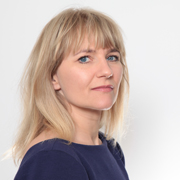Anne Mette tells us about the course: Concept development, systems development and innovation.
Perspectives from actor-network theory (ANT)
The course, Concept development, systems development and innovation, has its starting point in an ANT perspective. This means that there is a distinction between “invention” as a basic principle or idea and “innovation” as the process of following it through. This also means that innovation is seen as something that involves many types of skills and actors. Ranging from creativity and technical skills in connection to the generation of new ideas and practical realization, methodological and analytical skills for testing and evaluating, strategic communication and knowledge on organizations in relation to launching in different organizational contexts and, not least, an understanding of how these processes overlap.
A hands-on perspective and challenges from the outside world
The course program is split up into a number of modules that focuses on key elements of the project such as innovation and value creation. These modules begin with a seminar that sets the theoretical framework and continues with a series of workshops where the students have to work on a more practical level with the subject matter. In the seminars, Anne Mette Thorhauge ensures a theoretical and analytical framing of the process. In the workshops she helps the students with creating a more direct linkage between relevant concepts and individual project phases.
The focus is on the outside world and creating a relation to external stakeholders, providing students with some specific tasks while giving them feedback on the solutions subsequently. Anne Mette says: “Students often get a deeper understanding of the theoretical / analytical concepts when they have to translate them into concrete solutions or actions”. Additionally, external speakers are often involved in workshops when there is need for a more “hands-on” perspective.
Production of written documents throughout the process
The ongoing group work is structured around a number of key documents and assignments, such as descriptions of concepts, prototypes, business models and launch strategies. These documents are also the end products that the students will be working towards in their workshops. The documents are at the same time the material that the teachers assess and comment. By virtue of the above-mentioned key documents they ensure a written output throughout the process.
“In connection to the exam we also require a more general reflection on the process, i.e. around innovation, value creation or specific aspects of the product. We ask in this context that the students use their own process surrounding their project as the empirical data that they should use various terms and concepts in relation to” says Associate Professor Anne Mette Thorhauge.
